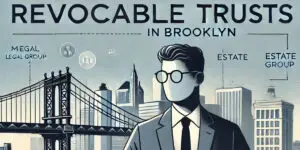Do you know the state gifting claw back has been revived? May be you have not heard of the term gifting claw back? It is a tax exempt rule that has been passed for the benefit of the people of New York to be able to transfer estate when they are alive and at death. If you have had worries about how to transfer your estates, this is the right time to take the advantage of the three years gift.
A state can decide to tax the gift taxes on the person that is receiving the property once one dies. Different states have different rules that govern the rules that are governing the gift taxes. New York has spelt out in the recent budget a limit in the taxation of an estate tax on the transfer upon the death of a person leaving the assets to another. Initially there was no gift or inheritance tax but as from April date 1 the state of New York “clawed back”. The state decided to add back to the givers taxable estate if the gifts in questions were made within the first three years of their death. In this article we are going to look at the reasons the state consider reviving the gifting claw back rule and how it will affect you the New York resident.. A single person can transfer up to &11400000 worth of estate and for a married couple, can transfer a total of ($22,800,000)
Why was the New York state gifting clawed back
The claw back was made legal to prevent the New Yokers from making gifts shortly before their death. The wealthy New Yokers would make the gifts right before their death to avoid the New York estate tax while still taking advantage of the federal estate and tax exclusion rule. The state had to come up with a rule that would regulate the way the gifts were controlled while the city ensured that the wealthy did not evade the tax.
The gifting claw back revival expanded period
The rule was set to expire over a given period of time but the state had it clawed back. The federal tax reform saw the need to double the federal exclusion amount. This amounted to twice the New York exemption and hence the claw back was expanded to prevent the loss of the revenue which arose from the deathbed gifts. The period was extended by three years meaning that the rule will be reviewed in 2025. During this date the federal tax exclusion amount is to align with the state of New York exemption
Let see when the claw back fail to apply.
There are various rules that make the claw back not apply in the New York state. They include the following
When the decedent did not recede in the state. If the decedent does not live in the state then the claw back does not apply to them. The decedent has to be a known resident of New York
If the gifting was done before April 1, 2014. The rule does not apply to anyone that was gifted before the rule was implemented.
The rule was reviewed between January 1, 2019 and January 15, 2019. During this period if one was gifted then the claw back doesn’t apply to them that brief period in 2019 prior to the announcement by the governor makes the claw back nullified.
When the gift is outside New York or if the tangible gift is outside New York.
If the gift is allocated after January 1, 2026.
Effect of claw back on married couple
It allows the spouse that is left after the death of another spouse a chance to pass any unused amount. The amount of eleven million dollars is the exemption that applies to the spouse upon the death of one of the partners. The amount is referred to be large and a lot of people think that it doesn’t affect them and this may be the case but they should confirm to ensure that they do not experience any complications. A comparison between the federal and state exemption in New York between the years 2019 and 2025 show that there was a huge difference between the two. The difference summed up to five million six hundred and sixty six million dollars. It is to be noted that the gifts are given only after one of the spouses passes away. The New York exemption is way lower compared to the federal exemption.
How does the affect the state of New York?
The federal estate allows married couples in New York to pass on a sum of twenty two million eight hundred thousand dollars tax free once one of the spouse dies. The claw back makes the planning more hectic and adds to the issues that affect the navigation by the astute advisors. Other states outside of New York may not have the three year claw back but it is important for the people in this states to refer to the rule s in the state governing the federal.
How much tax is cut in the job exemption?
People mostly think that the amount cut under the tax cuts exceptions add up to a level on eleven million eighteen hundred thousand dollars. This is a low amount compared to the actual individual cut. In the year 2019, the amount was found to be eleven million four hundred thousand dollars per person. This is a large difference since the average is done per individual.
FAQs
Can Estate tax changes be retroactive?
Yes. The taxes should they be gift taxes, or income taxes their changes may be implemented retroactively.
How much can you gift someone in New York?
In the current rule, you can be able to gift someone to a maximum of $11,200,000 for an individual and 22,400,000 for a spouse in marriage.
What is gift tax according to New York?
A gift tax is not imposed in New York. M New York applies for 3 years claw back rule whereby the lifetime made gifts are clawed back to the descendants estate in order to determine the New York estate tax.
How can I avoid gift tax?
You can avoid gift tax by paying medical or tuition bills directly. In other cases you can also spread the gift out between years.
Is tax from my parents taxable?
It is the giver of the gift who is table as for the receiver you do not need to freight at all. However if the gift is too trivial it may not be taxed anyway.









